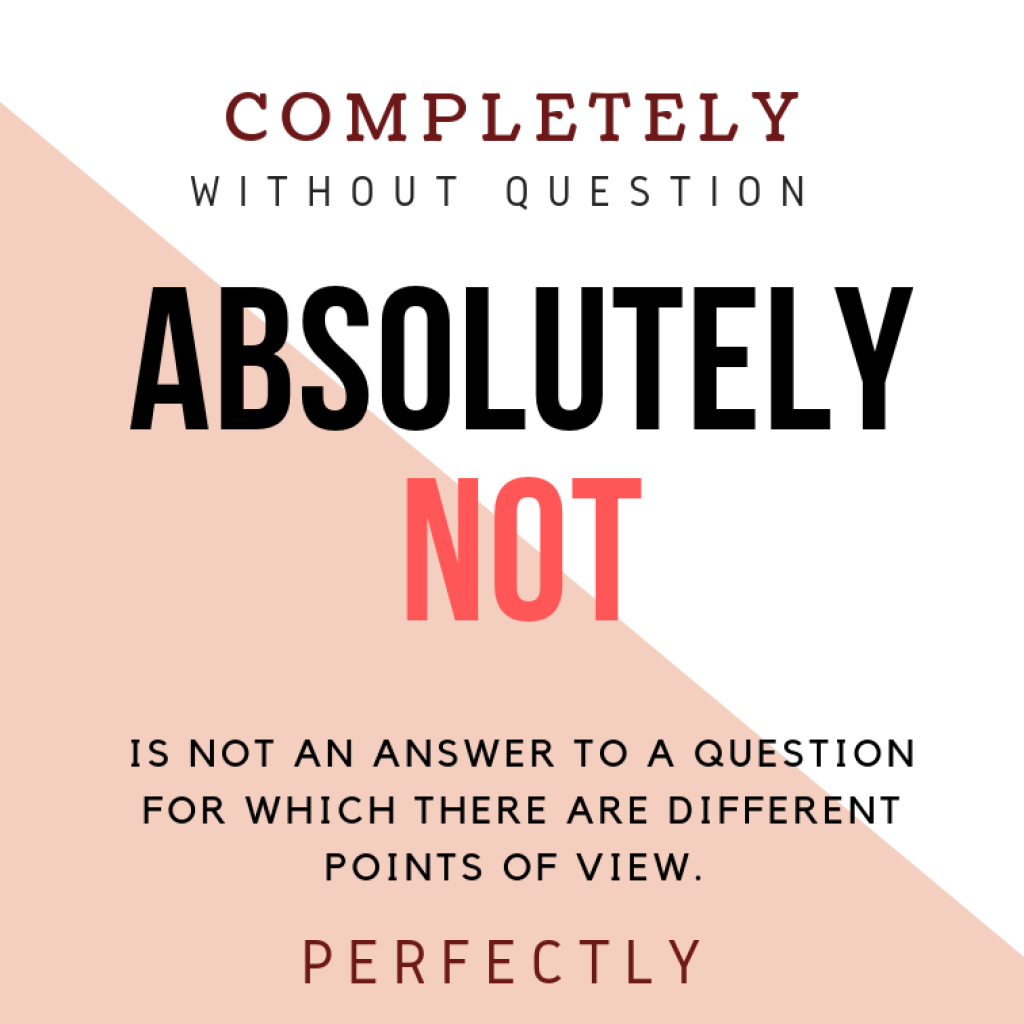Turn on any cable news channel (preferably MSNBC) and you will likely hear the word “absolutely” included in the response of a contributor or interviewee.
News anchor: “Will the Golden State Warriors hold on to the NBA Championship?
Guest: “Absolutely.“
News anchor: “ Will Trump fire Robert Mueller?”
Guest: “Absolutely.”
We know how these two scenarios played out.
Does the “expert” have supernatural ability to know what will happen? Obviously not. The answer comes from a desire to be right or to sway people to your point of view. But the overuse of the word has weakened it as a statement of claim or strong belief.
According to Webster’s Dictionary, absolutely is an adverb meaning with no qualification, restriction, or limitation; totally.

Nothing is absolute, except for taxes and death, as the saying goes. Yet, you can choose to not pay taxes or evade them altogether through legal means. And, some who believe in the afterlife may question the absoluteness of death.
Physicists argue if there anything absolute in the universe. After all, even the universe is relative, constantly in motion and changing.
The fact that the word is misused and maligned every day in public discourse, offers an opportunity to be a little different. To up your game as a public speaker.
Question: “Will your company make your earnings forecast this quarter?”
Answer: “We are highly optimistic that all the pieces are in place to exceed projections.”
Alternatives to absolutely:
- Strongly believe.
- Have a good feeling about this.
- Everything is pointing in that direction.
- Looks good.
- Or a simple Yes or No.
So, let’s get real and start thinking about the words that come out of our mouths? Know and respect the meaning of your word choices and become The Resonant Speaker.
P.S. There always exceptions to the rule: Do I want to lose 10 pounds? Absolutely.





